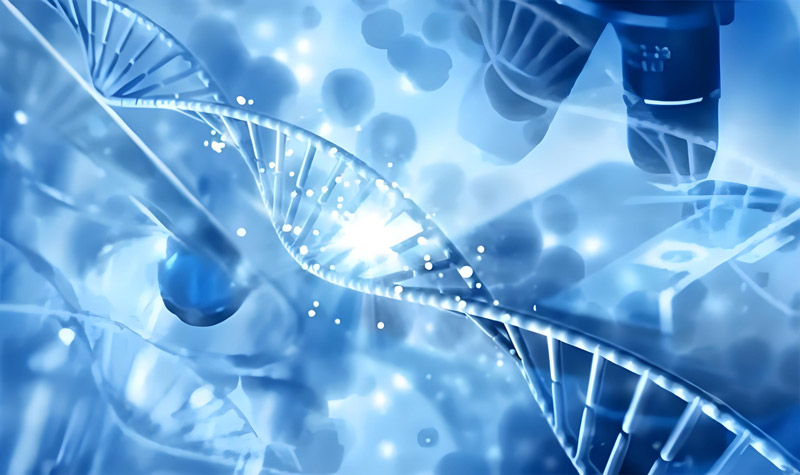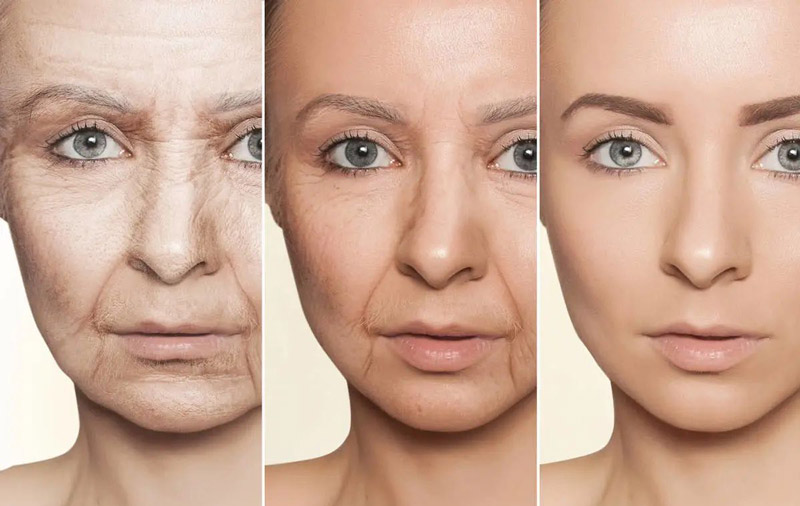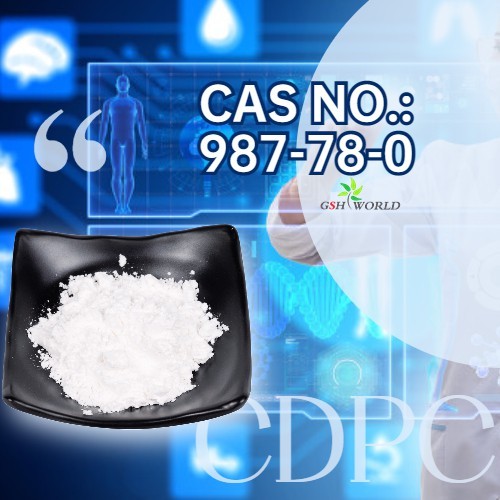The liver is one of the most important organs in the human body, with strong self-repair ability and load capacity, nutrients in the blood need to be metabolized in the liver, including proteins and clotting factors are synthesized in the liver, and the liver is also a place for the synthesis and secretion of bile.
The detoxification function is mainly reflected in the decomposition of exogenous and chronic toxins, such as drugs or alcohol that are usually taken by the liver for metabolism, and then detoxification, which can avoid the phenomenon of toxin accumulation in the body.
Spring is the season for all things to recover, the climate warms, the Yang rises, and the physiological activities of the human body will also change.
In the theory of traditional Chinese medicine, spring corresponds to the liver, which belongs to the wood in the five elements, and has functions such as regulating the movement of qi and blood and relieving emotions.
Therefore, it is particularly important to nourish the liver in spring.
For liver protection, nutritional support can be provided by adding a certain amount of selenium, NAC, milk thistle, α-lipoic acid, etc.
Why focus on liver health?
With the rapid pace of industrialization, our bodies have to deal with a seemingly ever-increasing load of toxins.
These toxins can come in the form of pesticides, household dust, outdoor air pollution, chemicals in water supplies, hormones injected into animal meat, artificial ingredients in processed foods, or harmful substances in cosmetics, lotions, and shampoos.
When toxins enter the body and enter the bloodstream, they are transported to the liver.
The liver then continues to sort to determine whether it should be left or left.
More specifically, it determines what needs to be broken down and excreted, and what needs to be passed through to provide nutrients to the body.
Removing toxins is more than just a simple filtration process.
Detoxification takes place in two stages.
In stage 1, liver enzymes must bind to toxic substances and convert them into safer compounds.
Then in stage 2, the liver adds molecules to these compounds to make them water-soluble (making them more stable and easier to transport).
Glutathione (r-glutamyl cysteingl +glycine (GSH)) is one of the substances that plays a major role in the second stage of liver detoxification.
It is made up of three amino acids (cysteine, glycine and glutamine), and the liver makes glutathione bind to toxins and flush them out of the body.
Glutathione is one of the most powerful anti-aging agents synthesized by the human body.
As an anti-aging agent, it may be able to combat free radicals - unstable oxygen molecules that are produced during normal metabolic processes in the body.
To restore stability, these oxygen molecules try to snatch electrons from the surrounding molecules, which may produce more free radicals.
As this activity continues to spread, it can lead to cell damage.
This is thought to contribute to the process of aging, as well as the development of infections and diseases, including cancer.
Since glutathione is synthesized in the liver, it's easy to see why liver health should be the focus of your health maintenance.
When the liver is tasked with having to deal with a large toxin load on a regular basis, it can affect its resources.
Not only is glutathione synthesis low, but other liver functions may also be impaired.
The liver also has other important roles, such as synthesizing good bile (needed to digest fat), storing iron and vitamins, breaking down aging red blood cells, and converting stored sugars into a form that the body can use for energy when needed.

What are the ways to protect liver and nourish liver?
1. Exercise
Exercise reduces stress on the liver because the skin is another detoxification pathway.
As sweating increases, more toxins may be excreted through the skin, reducing the burden on the liver.
2. Manage stress
Cortisol is the "stress hormone."
It also regulates the homeostasis or homeostasis of the liver.
Too much cortisol can upset this balance.
3. Limit your alcohol intake
alcoholic liver disease (alcoholic liver disease) is a liver disease caused by long-term heavy alcohol consumption.
It usually begins with fatty liver disease, which can progress to alcoholic hepatitis, liver fibrosis and cirrhosis.
According to the "second blow" theory, alcohol factors as the first blow, through oxidative stress to promote the increase of reactive oxides, and induce liver fat accumulation.
Under the action of oxidative stress-related lipid peroxidation and inflammatory cytokines, the liposclerosis liver cells undergo a second blow, resulting in inflammation, necrosis and fibrosis.
4. Eat a balanced and nutritious diet
Reduce your intake of trans fats, saturated fats, and hydrogenated fats, as they increase the risk of fatty liver disease.
Saturated fat is found in fried foods, dairy products, and red meat (although grass-fed beef has less saturated fat than grain-fed beef).
Limit refined sugar and high fructose corn syrup.
Since these types of sugars can only be processed in the liver, avoiding them may reduce the burden on the liver.
What are foods and nutritional supplements that benefit liver?
Glutathione
Green tea, fish oil, and resveratrol may contain substances that activate genes responsible for glutathione synthesis.
Cruciferous vegetables (such as broccoli, cabbage, and cauliflower) may enhance glutathione synthesis.
Garlic and onions both contain sulfur, which is necessary for the synthesis of glutathione.
selenium
Selenium is a mineral that may enhance the liver's ability to recycle glutathione.
It can be found in supplements or in foods such as Turkey, sardines and Brazil nuts.
(A later issue will be devoted to the selection of selenium as a nutritional supplement, and how to obtain adequate amounts of selenium from food)
Vitamin E
Vitamin E is an important anti-aging agent that helps recycle glutathione.
Foods rich in vitamin E include almonds, avocados, and spinach.
Vitamin C
A well-known anti-aging agent, vitamin C works with glutathione to eliminate water-soluble toxins from the body.
N-acetylcysteine (NAC)
N-acetylcysteine is an amino acid that is a precursor to glutathione.
So it may help replenish the liver's glutathione supply.
After drinking a lot of alcohol, harmful substances such as acetaldehyde and hydrogen peroxide are produced in the process of alcohol (ethanol) metabolism.
In addition to a small part of alcohol intake in the stomach metabolism, most of the alcohol metabolism in the liver, NAC can accelerate ethanol metabolism and combat ethanol liver damage.

Alpha lipoic acid
Alpha-lipoic acid is an anti-aging agent and a precursor of glutathione.
silybum
The most effective component of milk thistle in liver protection is silybin, which can regulate liver cell death, regulate lipid cell metabolism, fight liver inflammation, fight oxidative stress response in the liver location, and regulate the microecology of the entire liver.
So silybin is a very comprehensive liver care ingredient.
Green tea
Green tea is rich in anti-aging agents called catechins, which may boost liver function.
Fermented food
Pickles, kombucha, sauerkraut, and other fermented foods contain probiotics, which are beneficial bacteria that may benefit a healthy digestive system and protect the lining of the gut.
Keeping harmful substances in the digestive tract and out of circulation may reduce the detoxification burden on the liver.
The toxin can then be removed simply through the stool.
beet
Betaine, found in beets, may aid in the detoxification process as well as the breakdown and elimination of fat in the liver.
Green leafy vegetable
Greens such as kale, romaine lettuce, spinach, arugula, kale, and green dandelion are rich in chlorophyll, which may increase bile synthesis, help purify the blood, and break down heavy metals, pesticides, and toxic chemicals that can burden the liver.
Omega-3
Fish and krill oils contain omega-3 fatty acids, which have been shown to reduce fat and inflammatory responses in the liver in patients with nonalcoholic fatty liver disease.
Omega-3 supplements may improve liver function and reduce inflammatory responses.

![[Glutathione] spring liver nourishing time](https://biopharmapi.com/file/upload/202502/19/112949411.jpg)




